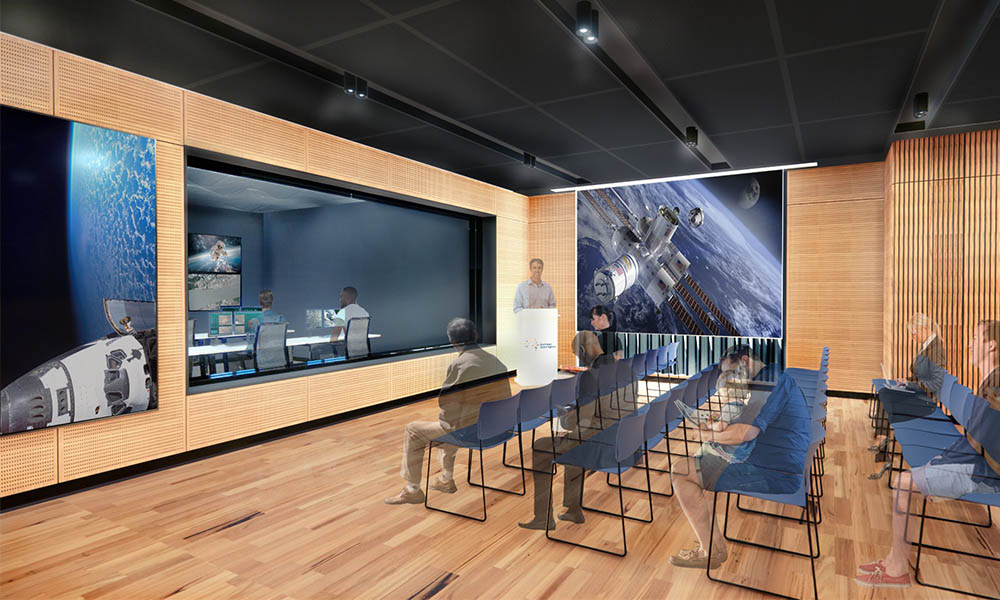Saber Astronautics, partners in the ARC Training Centre CUAVA, have been awarded a $6 Million grant by the Department of Industry, Science, Innovation, and Resources in conjunction with the Australian Space Agency for the development of Australia’s Mission Control Centre. This project received grant funding from the Australian Government’s Space Infrastructure Fund.
Branded as the “Responsive Space Operations Centre” (or RSOC for short), Saber will bring next generation space mission control technologies to make it easier to fly new spacecraft. Capabilities include concurrent design, pre-flight testing, launch support, as well as live operations during flight. The RSOC will also be the first professional control centre in the world to use machine learning in spacecraft day-to-day operations along with 3D gaming technologies.
Saber’s CEO Dr Jason Held, explained this as a willingness for Australia to leap ahead. “Running Australia’s new Mission Control Centre is one of the most exciting opportunities we’ve ever had. It shows that the Australian Space Agency as a brand-new space program is indeed looking to do business differently, tackle the hard problems, and make a serious play for space. For Saber Astronautics, this is nothing less than our dream job.”
CUAVA’s Director, Prof. Iver Cairns, congratulated Saber and stated “Having CUAVA partner Saber lead development of a national Mission Control Centre is another demonstration that Australian space industry is world-class and world-leading. We look forward to working with Saber and other partners in supporting the development of this facility and then to use it for future CUAVA CubeSats.”
Once completed the RSOC will support day-to-day mission control for small and medium enterprises, using Saber’s technologies to reduce risk for investors. “Our missions to train people for Australia’s space sector and to develop Australian space industry mean that CUAVA and its partners (including companies Saber, ArborCarbon, and HyVista, the Defence Science and Technology Group and Bureau of Meteorology, and the University of Sydney, University of New South Wales, and Macquarie University) are natural users for RSOC”, said Prof. Cairns. “Note that nearly 100 new space companies formed in Australia during the last three years and the Space Agency has the goal of growing to a $12Bn industry by 2030, so this is a crucial sector to invest in”.







